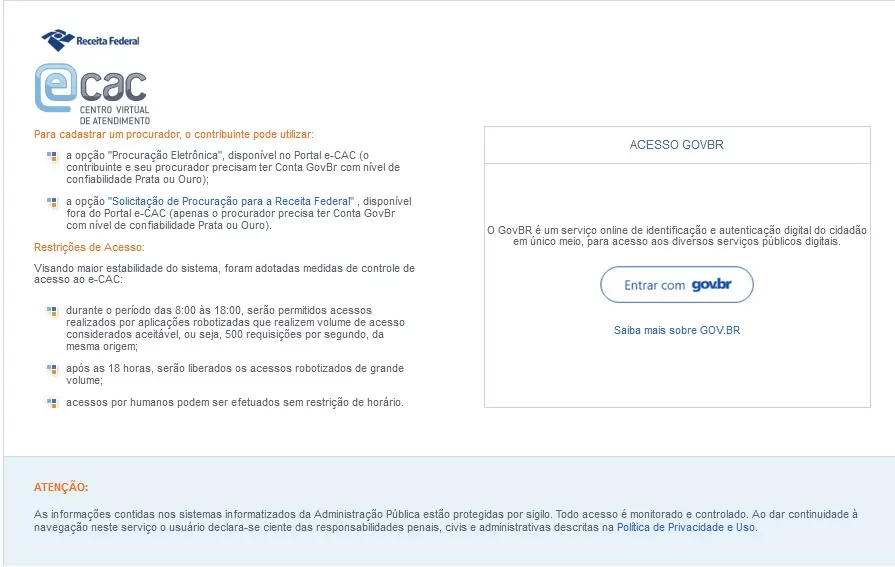Being fined by the tax authorities is an experience that no company wants to go through. In Brazil, where the tax system is considered one of the most complex in the world, simple calculation errors or omissions in returns can lead to fines exceeding 150% of the tax due, plus interest and monetary correction.
For many companies, a tax assessment is enough to jeopardize cash flow, paralyze operations and even make the business unviable.
The problem is that many of the fines are the result of avoidable operational failures, This is often due to a lack of proper accounting follow-up, a lack of tax audits or a lack of knowledge of accessory obligations.
With the advancement of electronic cross-checking, the tax authorities have become increasingly efficient at identifying inconsistencies, which requires companies to have a level of tax compliance much stricter.
The good news is that with structured processes, periodic review of obligations and the support of a specialized consultancy, it is possible to eliminate these risks.
Below, you can see 7 common tax mistakes that cost companies dearly and how to avoid them safely.
1. choosing the wrong tax regime

Many entrepreneurs start their business in Simples Nacional, They are attracted by the practicality, but end up exceeding the annual turnover limit and do not make migration compulsory for Presumed Profit or Real Profit.
When the tax authorities identify that the limit has been exceeded without formal communication, they demand retroactive payment of all taxes, plus fines and interest.
On the other hand, there are companies that remain in Presumed Profit when, by the nature of the activity, they should be in the Real Profit, These include those obliged by specific legislation, those with revenues of more than R$ 78 million per year or those that receive profits from sources abroad.
In addition, in 2026, Presumed Profit companies with turnover above R$ 5 million must apply an increase of 10% to the IRPJ and CSLL calculation basis on the portion that exceeds this amount (Complementary Law no. 224/2025).
How to avoid it: The tax regime must be reassessed annually, This should be done, preferably with the support of an accounting consultancy. It is important to project scenarios, compare margins and simulate the tax impacts of each model. In CLM Controller, This analysis is based on financial indicators, cost structure and growth prospects, guaranteeing the correct framework and the lowest possible tax risk.
2. Flaws in SPED and ancillary obligations
O SPED (Public Digital Bookkeeping System) is the government's main inspection tool. It allows accounting, tax and social security information to be cross-referenced automatically.
In practice, this means that any discrepancy between the data declared in different obligations, such as EFD-Contributions, ECD, DCTF, EFD-ICMS/IPI and NF-e, This can lead to instant fines.
Among the most common mistakes are:
- Divergence between invoices issued and invoicing reported;
- Launch of undue PIS/COFINS credits;
- Parameterization faults in the ERP that lead to incorrect values in SPED;
- Late deliveries or incomplete information.
These failures are usually detected by the Revenue system itself, which issues notifications via e-CAC, These warnings can also be used to prevent companies from submitting tax returns or being caught up in the digital tax loophole. When the company ignores the warnings, the inconsistency is converted into a notice of infringement.
How to avoid it: Implement a monthly routine of preventive auditing of returns, comparing tax information with accounting and financial reports.
Use automated conferencing tools and always keep staff trained to follow updates to delivery rules.
CLM Controller offers continuous electronic auditing, by reconciling data before transmission and drastically reducing the risk of notifications.
3. Failure to correctly segregate revenues and tax rates
Companies that operate multiple activities, such as commerce, industry and services, need to correctly segregate your revenues to apply the appropriate tax percentages.
In Presumed Profit, This difference is decisive: commercial activities use a presumption of 8%, while services generally use 32%.
In 2026, it must be considered that the calculation base above R$ 5 million is increased by 10% in IRPJ and CSLL, even respecting the presumption percentages of each activity.
Applying the wrong tax rate, even if it's a system error, is sufficient reason for an assessment.
Another recurring problem involves the DIFAL (Differential Rate) in interstate operations. Many companies, especially in the e-commerce sector, have failed to correctly pay the tax due to the state of destination, which has resulted in thousands of notifications in recent years.
How to avoid it: Keep updated tax records with the CNAE, NCM, CFOP and CST information correctly configured.
Periodically review the base of products and services, especially after changes in state tax rates.
A CLM Controller adopts a policy of reconciling tax records and parameterizations, ensuring that each operation is taxed correctly.
4. Incorrect calculation of withholding taxes and contributions
Brazilian legislation requires various operations to contain withholding taxes, such as IRRF, CSRF, PIS/COFINS/CSLL and INSS.
It happens that many companies, when contracting services, fail to correctly withhold and collect the amounts due. In these cases, the tax authorities hold the contracting company responsible and assess the full amount, plus a fine.
Another point of attention is the non-deductible expenses in the calculation of IRPJ and CSLL. Tax fines, personal expenses of partners and expenses without an invoice cannot be deducted.
In addition, the disallowance of expenses must take into account the new rule of an increase of 10% of Presumed Profit for turnover above R$ 5 million, according to the LC 224/2025.
When the tax authorities detect such entries, they disallow expenses, artificially increasing taxable income.
How to avoid it: Implement a withholding checklist in the financial sector, defining rules for each type of service contracted. It is essential for accounting to periodically validate withholdings and reconcile the amounts paid with those reported in the statements.
A CLM Controller trains finance teams and provides standardized retention protocols, ensuring full compliance with legislation.
5. Focusing only on taxes and neglecting labor and social security issues
Inspection is not limited to the tax field. Labor and social security obligations are also among the main causes of fines in Brazil. Companies that fail to register employees, pay part of their salary “on the side” or provide inconsistent data in the eSocial are subject to severe fines.
Faults such as Incorrect GFIP, understated social security contributions and lack of FGTS payment are automatically detected by the Revenue and Labor Ministry systems. Furthermore, integration between the eSocial, EFD-Reinf and DCTFWeb systems has made it impossible to hide inconsistencies.
How to avoid it: Establish a routine of labor compliance, The system integrates HR, finance and accounting. All admissions, terminations and contractual changes must be recorded in real time.
CLM Controller works with a unified approach, ensuring that payroll, charges and social obligations are always correct and synchronized with official declarations.
6. Failure to monitor tax compliance
Ignoring warnings from the tax authorities is one of the most frequent causes of tax assessments. Many companies fall foul of omitting statements, delaying deliveries or simply not monitoring e-CAC.
It is common for the IRS to send electronic summonses which, if not answered within the deadline, automatically become infraction notices.
In addition, companies that do not control the emission of Debt Clearance Certificates (CNDs) may find out too late that they have outstanding tax obligations that block bids, financing or even the issuing of invoices.
How to avoid it: The ideal is to adopt a proactive fiscal monitoring, with a fortnightly or monthly review of the company's status on the Internal Revenue Service, SEFAZ and city hall portals.
CLM Controller has a automatic tax compliance check, sending immediate alerts in the event of a detected problem.
7. Lack of tax planning
The last, and perhaps most serious mistake, is to operate without a strategic tax planning. Many companies believe that simply complying with their obligations is enough to be up to date with the tax authorities, but this is not the case.
Without planning, entrepreneurs run the risk of paying more tax than they should or, worse, making undue offsets that can lead to fines.
Typical cases include the incorrect use of PIS/COFINS credits, non-compliance with the 30% lock on offsetting tax losses and the use of expired tax benefits.
These mistakes are easily detected by electronic audits and generate very high penalties.
How to avoid it: Invest in preventive tax consultancy. Planning must be continuous, reviewed with each change in legislation or variation in turnover.
CLM Controller develops customized plans that balance tax burden and tax security, allowing clients to take advantage of legal benefits of tax avoidance, without running the risk of being accused of evasion.










